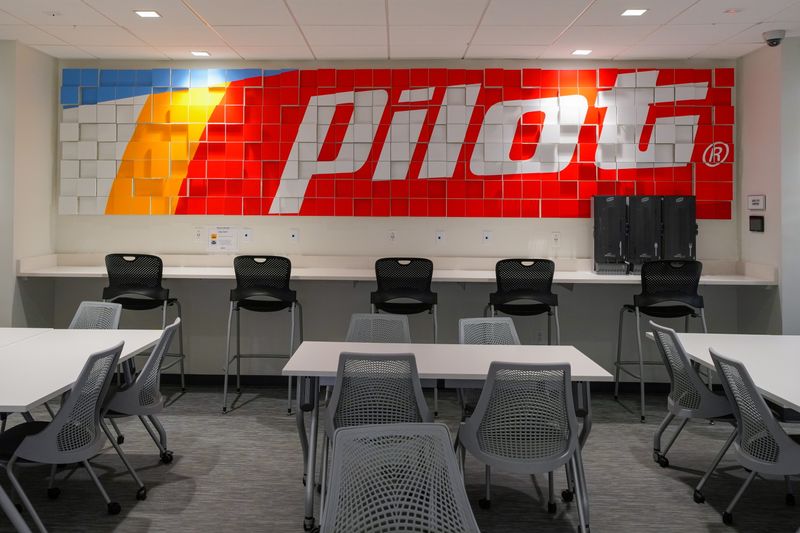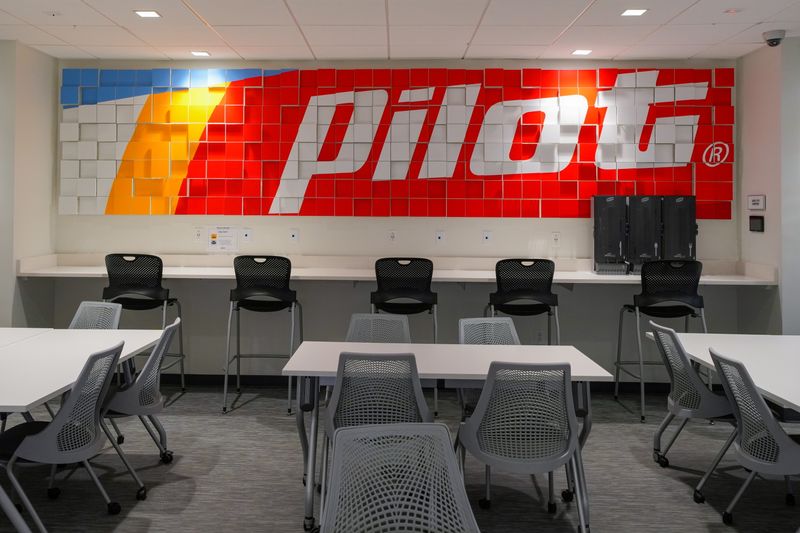By Gary McWilliams and Marianna Parraga
(Reuters) -One of the largest U.S. diesel retailers is assembling a fuels trading, processing and distribution powerhouse that could turn a truck stop operator part-owned by billionaire Warren Buffett into the Walmart (NYSE:WMT) of petroleum.
Known best for its Pilot Flying J service stations, Pilot Company has hired veteran energy traders and expanded into Latin America's fuels markets. Under Buffett's wing, the company is quickly broadening into buying, processing, distributing and marketing fuels.
Shameek Konar, a former Castleton Commodities executive who this year became Pilot's chief executive, said in an interview the moves into oil trading, international markets and processing complement its North American retail operations.
"What is happening in crude oil markets, ags (agricultural) markets is very important," said Konar. "The best way to understand the spreads is by being in those markets," he said referring to trading bets on feedstocks and fuels.
Pilot's strategy, said Konar, is to obtain cheaper fuels and expand sales volumes through its own stores and through large retailers and fuel wholesalers, using trading, storage and transportation assets.
"The goal is to integrate the supply chain from a fuel basis," he said. "We are bringing in biodiesel, gasoline components, spending on what markets are available to us."
It also reflects a shrinking business for conventional motor fuels in North America that has led retailers to look for growth in related markets, said strategy consultants.
The expansion began after Buffett's Berkshire Hathaway (NYSE:BRKa) took an about 39% stake in the business and agreed to increase its ownership in Pilot to 80% in 2023. Following the Pilot deal, Berkshire separately invested in Japanese commodities trading houses.
Greg Abel, the head of Berkshire Energy, declined to comment on how energy trading fits into Berkshire's investments.
A MOVE INTO MEXICO
Pilot's trading has gone international with deals in Mexico and other Latin American countries. It aims to begin diesel and gasoline distribution in Mexico, said a person familiar with the matter.
Its trading arm represents the largest U.S. energy commodities startup since Freepoint Commodities opened in 2011, said a consultant, who declined to be identified due to work with related energy firms.
The Tennessee-based company's oil and petroleum trading is small, with about 100 employees, a fraction of the staff at better-known Freepoint Commodities, Mercuria and Vitol.
This year, it has expanded the business by adding financial trading and Mexican diesel supply experts from Noble Group, Vitol and Exxon Mobil (NYSE:XOM), said people familiar with the company.
Pilot is trading 750,000 barrels of diesel and gasoline per day for its U.S. operations, and the expansion into Latin America "gives us a good outlet for our product," said Konar.
The push into Latin America also comes as other traders are mired in scandals there.
BIODIESEL PUSH
Pilot is evaluating stakes in biodiesel processing operations after becoming one of the largest U.S. biodiesel sellers, Konar said.
He did not rule out a purchase of an oil refinery, but that is "not top of mind at the moment," he said.

Fuel retailers have ventured into fuel production as oil refiners bulk up retail arms, said Tony Portera, a managing director at business consulting firm BCG. Parkland Fuel Corp acquired a Chevron (NYSE:CVX) refinery while oil processors Irving Corp and Royal Dutch Shell (LON:RDSa) have purchased retail outlets.
"The pie will get small, but the players that are left in this industry will take larger pieces of that pie," said Brian Gray, head of Accenture (NYSE:ACN)'s global fuel and convenience retail consulting.
